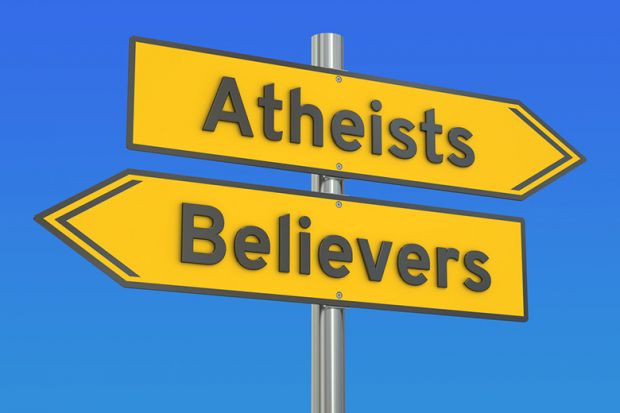Terse reflections on religion and atheism can make fascinating reading. Although a self-confessed atheist, Tim Crane is almost as critical of the well-known New Atheists as he is of religious believers. His presentation of the relevant perspectives of each group provides a refreshingly new turn in the atheism-versus-religion debate, although one soon discovers some missing elements.
Religion, atheism and humanism are examined from a rather general, abstract philosophical standpoint. For Crane, religious belief is not necessarily irrational, as the New Atheists maintain. His own description of religion is more positive, but nonetheless limited. Its focus is reduced to four essential elements: religion is systematic; it is practical; it is an attempt to find meaning in life and especially of life; and it appeals to the transcendent, which is seen as beyond this world, “beyond the ordinary, the everyday, the world of experience, and the world of science too”.
Belief is understood as a state of mind that governs human action and is related to specific contents. Crane works with a philosophical understanding of belief that includes accessibility to consciousness, connection to action and aiming towards truth. He criticises the relentlessly combative New Atheists whose disrespectful comments arise because of their inadequate conception of religion, so that no genuine debate can take place. For this to develop, an accurate account of the phenomenon of religion itself is needed first, which this book is meant to provide.
However, both religious believers and scholars of the comparative study of religions will find much to disagree with in Crane’s relatively essentialist account of religion based on two major concepts: the “religious impulse” and “identification”. These overlook a wealth of other factors, experiences and realities that are of equal, if not greater, importance.
Inspired by William James’ belief in an unseen, normative order, Crane speaks of this belief as the “religious impulse”. Human good consists in living in accordance with this order. “Identification” covers much of what is usually understood as the social dimension of religion. Crane also draws on Émile Durkheim’s understanding of religion and the sacred without mentioning that this has recently come under much criticism. Among the few concrete data mentioned are the fact that the world’s 7.1 billion people include 6 billion who belong to some religion or other, contrary to the New Atheists’ claim that religion is in decline. In Crane’s view, a genuine dialogue between atheists and religious believers can develop only if each side first gains an adequate understanding of the views of the other.
Crane presents religion almost entirely as an intellectual-rational construct. Long ago, the great religion scholar Wilfred Cantwell Smith questioned the validity of the notion of “religion” itself as a peculiarly European construct and examined the fundamental differences between belief and faith. The religion described here remains abstract; it is not religion as lived and experienced because much of the heart of religion is ignored. Important aspects remain in the dark, so that the light of faith cannot shine here. The full importance of transcendence remains hidden, too, when it is not revealed how it is always deeply intertwined with immanence.
Crane’s challenging book deserves to be widely discussed.
Ursula King is professor emerita of theology and religious studies at the University of Bristol.
The Meaning of Belief: Religion from an Atheist’s Point of View
By Tim Crane
Harvard University Press, 224pp, £19.95
ISBN 9780674088832
Published 31 October 2017
Register to continue
Why register?
- Registration is free and only takes a moment
- Once registered, you can read 3 articles a month
- Sign up for our newsletter
Subscribe
Or subscribe for unlimited access to:
- Unlimited access to news, views, insights & reviews
- Digital editions
- Digital access to THE’s university and college rankings analysis
Already registered or a current subscriber? Login








